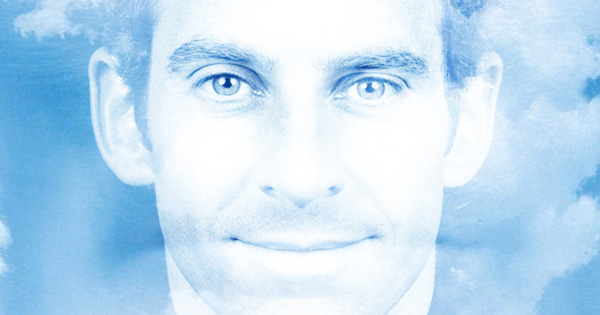Neuroscientist Sam Harris Selects 12 Books Everyone Should Read
by Maria Popova
From Bertrand Russell to the Buddha, or why you should spend a weekend reading the Qur’an.
 On an excellent recent episode of The Tim Ferriss Show — one of these nine podcasts for a fuller life — neuroscientist Sam Harrisanswered a listener’s question inquiring what books everyone should read. As a lover of notable reading lists and an ardent admirer of Harris’s mind and work, I was thrilled to hear his recommendations — but as each one rolled by, it brought with it an ebbing anticipatory anxiety that he too might fall prey to male intellectuals’ tendency to extoll almost exclusively the work of other male intellectuals. (Look no further than Neil deGrasse Tyson’s reading list for evidence.) And indeed Harris did — the books he recommended on the show, however outstanding, were all by men.
On an excellent recent episode of The Tim Ferriss Show — one of these nine podcasts for a fuller life — neuroscientist Sam Harrisanswered a listener’s question inquiring what books everyone should read. As a lover of notable reading lists and an ardent admirer of Harris’s mind and work, I was thrilled to hear his recommendations — but as each one rolled by, it brought with it an ebbing anticipatory anxiety that he too might fall prey to male intellectuals’ tendency to extoll almost exclusively the work of other male intellectuals. (Look no further than Neil deGrasse Tyson’s reading list for evidence.) And indeed Harris did — the books he recommended on the show, however outstanding, were all by men.
I was perplexed, both because references throughout his own excellent books indicate that Harris reads far more widely than this unfortunate lapse of packaging makes it seem, and because he is the loving father of two small female humans who will go through life absorbing our culture’s messages about the value of women’s minds and voices. And since I believe that the best way to complain is to do something constructive, I reached out and asked him for an expanded version of his reading list that includes some of his favorite books by women. He kindly complied and offered a stimulating selection of twelve books to enrich any human life — here it is, beginning with the original eight from the show and Harris’s comments about some of them:

Sam Harris, Wikipedia: https://en.wikipedia.org/wiki/Sam_Harris
- The History of Western Philosophy (public library) by Bertrand Russell
- Reasons and Persons (public library) by Derek Parfit
- The Last Word (public library) by Thomas Nagel
- The Holy Qur’an (public library)
- Superintelligence (public library) by Nick Bostrom
- Humiliation: And Other Essays on Honor, Social Discomfort, and Violence(public library) by William Ian Miller
- The Flight of the Garuda: The Dzogchen Tradition of Tibetan Buddhism(public library) by Keith Dowman
- I Am That (public library) by Nisargadatta Maharaj
- Infidel (public library) by Ayaan Hirsi Ali
- The Year of Magical Thinking (public library) by Joan Didion
- The Journalist and the Murderer (public library) by Janet Malcolm
- Machete Season: The Killers in Rwanda Speak (public library) by Jean Hatzfeld
Bertrand Russell … is one of the great philosophers of his time… a remarkably clear thinker and writer… a great example of how English should be written and just a great voice to have in your head.
Brilliant and written as though by an alien intelligence. A deeply strange book filled with thought experiments that bend your intuitions left and right. A truly strange and unique document, and incredibly insightful about morality and questions of identity.
I’m a big fan of Thomas Nagel’s earlier work… He is a very fine writer — a very clear writer — and just as a style of communication … he’s worth going to school on.
Everyone should read the Holy Qur’an… Read it — it’s much shorter than the Bible; you can read it in a weekend, and you’ll be informed about the central doctrines of Islam in a way that you may not be, and it’s good to be informed, given how much influence these ideas have currently in our world.
The clearest book I’ve come across that makes the case that the so-called “control problem” — the problem of building human-level and beyond artificial intelligence that we can control, that we can know in advance will converge with our interests — is a truly difficult and important task, because we will end up building this stuff by happenstance if we simply keep going in the direction we’re headed. Unless we can solve this problem in advance and have good reason to believe that the machines we are building are benign and their behavior predictable — even when they exceed us in intelligence a thousand-, a million-, or a billion-fold — this is going to be a catastrophic intrusion into our lives that we may not survive.
Complement with the reading lists of Joan Didion, Susan Sontag, Carl Sagan, and Alan Turing, then revisit Harris on the paradox of meditation and subscribe to The Tim Ferriss Show here.

No comments:
Post a Comment